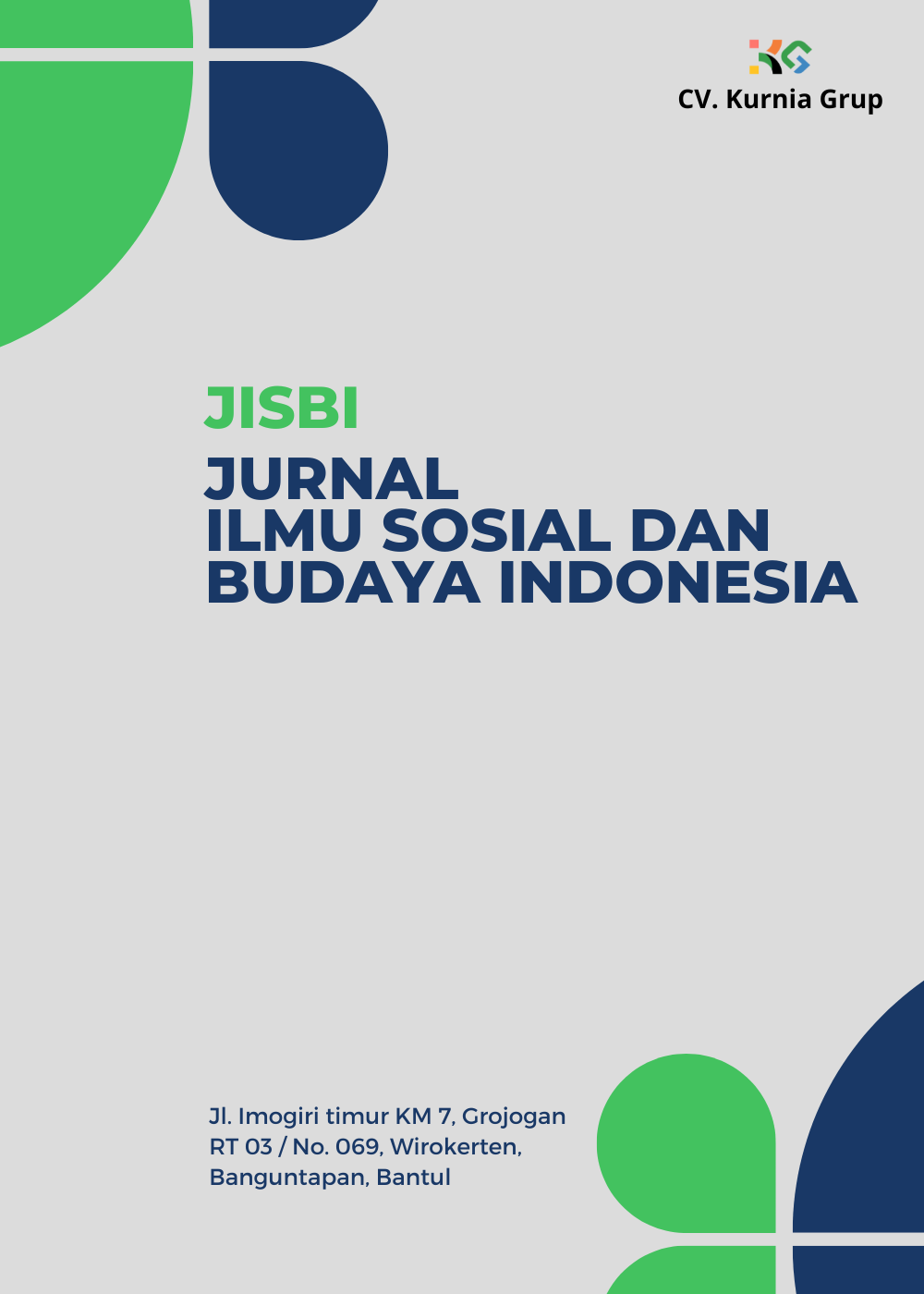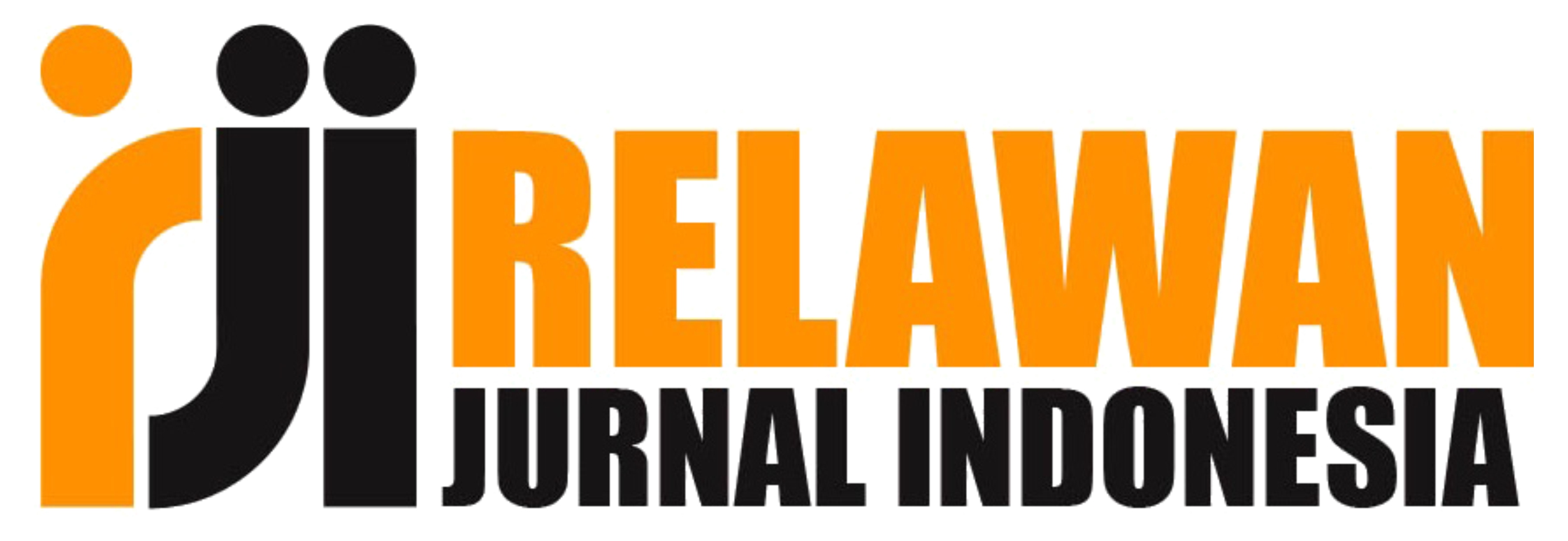Customary Law as an Ecological Mechanism: A Literature Review of the Socio-Ecological System of the Kajang Tribe in South Sulawesi
DOI:
https://doi.org/10.61476/p3pr4875Keywords:
Customary Law, Ammatoa, Kajang Tribe, Environmental Conservation, Local WisdomAbstract
Customary law is a collective value system that originates from local wisdom and is passed down from generation to generation within indigenous communities. This study aims to examine the role of Ammatoa customary law in the Kajang tribe community in South Sulawesi as an ecological mechanism based on spirituality and social structure. Using a descriptive qualitative approach with a literature review method, this study examines relevant scientific literature on the structure of customary law, the values of Pasang ri Kajang, the principle of kamase-mase, and the Patuntung belief system. The results of the study show that Kajang customary law not only regulates social relations but also protects the environment through customary prohibitions, the division of sacred zones, a social sanction system based on siri’, and collective governance led by Ammatoa. This system reflects living law and operates effectively without state intervention. Customary law has proven to be more adaptive and adhered to because it is based on moral and spiritual legitimacy, not formal legal coercion. Additionally, these findings indicate that synergy between customary law and state law is feasible to strengthen national conservation policies that are ecologically just. Therefore, customary law must be substantively recognized as a partner in sustainable environmental governance in Indonesia.
References
Abdullah, A., Fisher, M. R., & Sahide, M. A. K. (2024). Environmental Governance Challenges of Indigenous Forest Recognition: Climate Solution Ideal and Its Uneven Outcomes in Indonesia. Forest and Society, 8(2), 402–421. https://doi.org/10.24259/fs.v8i2.34423
Afdal, A., Lambali, S., & Syahribulan, S. (2022). Innovation in the Implementation of Ammatoa Customary Regional Regulations on the Kajang Indigenous Community in Bulukumba Regency. Proceedings of the 6th Batusangkar International Conference, BIC 2021, 11 - 12 October, 2021, Batusangkar-West Sumatra, Indonesia. Proceedings of the 6th Batusangkar International Conference, BIC 2021, 11 - 12 October, 2021, Batusangkar-West Sumatra, Indonesia, Batusangkar, Indonesia. https://doi.org/10.4108/eai.11-10-2021.2319639
Andalusia, Z. Z., & Kansil, C. S. (2023). The Existence of Silariang Customary Delik In The Customary Law of Kajang Kab. Bulukumba Against Indonesian Law. Journal Research of Social, Science, Economics, and Management, 2(07). https://doi.org/10.36418/jrssem.v2i07.352
Arisnawawi, Paelongan, C., Tangibali, K. H., Payung, F. G., & Alfat, M. I. (2024). Pembentukan Karakter Bangsa melalui Integrasi Prinsip Ketuhanan dan Nilai- Nilai Adat dalam Pancasila. Journal of Marginal Social Research, 1(1), 34–42.
Aspan, Z., & Irwansyah, I. (2023). Maintaining environmental sustainability based on traditional knowledge: Lesson from Kajang tribe. Russian Law Journal, 11(1), 69–74. https://doi.org/10.52783/rlj.v11i1.349
Erawati, E., Lewa, I., & Thosibo, A. (2022). Reflection of the Pasang Ri Kajang in Settlements Traditional Communities Kajang Bulukumba Regency: 9th Asbam International Conference (Archeology, History, & Culture In The Nature of Malay) (ASBAM 2021), Makassar, Indonesia. https://doi.org/10.2991/assehr.k.220408.005
Hasan, H., & Nur, H. (2019). Patuntung Sebagai Kepercayaan Masyarakat Kajang Dalam (Ilalang Embayya) Di Kabupaten Bulukumba. Phinisi Integration Review, 2(2), 185. https://doi.org/10.26858/pir.v2i2.9981
Hutabarat, S. A., Judijanto, L., Rahim, E. I., Nuraeni, Y., Takdir, Zamrud, W. O., Citranu, Herman, & Yase, I. K. K. (2024). Hukum Adat Indonesia (Sejarah dan Perkembangannya). PT. Sonpedia Publishing Indonesia.
Ichwan, M., Reskiani, U., Indah, A. L., Fitri Makmur, A. N. A., & Djafar, E. M. (2021). Pasang ri Kajang: Tradisi Lisan Masyarakat Adat Ammatoa Suku Kajang dalam Pembentukan Karakter Konservasi. Ideas: Jurnal Pendidikan, Sosial, Dan Budaya, 7(4), 133. https://doi.org/10.32884/ideas.v7i4.495
Jalal, J., Akhiruddin, A., Salemuddin, Muh. R., Iskandar, A. M., Sriwahyuni, S., & Kasim, H. (2024). Social Construction for Maintaining Local Wisdom: Study of Kajang Community, South Sulawesi, Indonesia. JSW (Jurnal Sosiologi Walisongo), 8(1), 95–110. https://doi.org/10.21580/jsw.2024.8.1.18839
Jayantiari, I. G. A. M. R., Arjawa, I. G. P. B. S., Rebeiro, L., & Paquita, J. A. (2024). Forming Legal Culture in Customary Forest Management: Local Wisdom Approach of Customary Law Communities. Udayana Journal of Law and Culture, 8(1), 67. https://doi.org/10.24843/UJLC.2024.v08.i01.p04
Megawati, S., & Mahdiannur, M. A. (2021). Implementation of Forest Conservation Policies based on Local Wisdom of the Ammatoa Kajang Indigenous Community. IOP Conference Series: Earth and Environmental Science, 940(1), 012082. https://doi.org/10.1088/1755-1315/940/1/012082
Meleong, L. J. (2018). Metologi penelitian kualitatif (Edisi revisi; Cet.38, Juli 2018). PT Remaja Rosdakarya.
Miles, M. B., Huberman, A. M., & Saldaña, J. (2014). Qualitative data analysis: A methods sourcebook (Third edition). SAGE Publications, Inc.
Mubarok, A., Absori, Harun, & Sheela Jayabalan. (2023). The Relationship Of State Law And Customary Law: Reinforcement And Protection Of Customary Law In Constitutional Court Judgment. Jurnal Jurisprudence, 188–204. https://doi.org/10.23917/jurisprudence.v13i2.2914
Muur, W. V. D., & Bedner, A. (2016). Traditional rule as “modern governance”: Recognising the Ammatoa Kajang adat law community. Mimbar Hukum - Fakultas Hukum Universitas Gadjah Mada, 28(1), 149. https://doi.org/10.22146/jmh.15871
Nur, R. (2024). Revitalisasi Hukum: Integrasi Kearifan Adat Ammatoa Suku Kajang dalam Pelestarian Lingkungan Hidup. Pikukuh: Jurnal Hukum dan Kearifan Lokal, 1(2), 99–111. http://dx.doi.org/10.62870/pkh.v1i1.29192
Nurkhalis, N., Arief, H., & Sunarminto, T. (2018). Analisis Stakeholders Dalam Pengembangan Ekowisata di Hutan Adat Ammatoa Kajang Sulawesi Selatan. Jurnal Pariwisata, 5(2), 107–119. https://doi.org/10.31311/par.v5i2.3811
Nurmala, Muh. Dassir, & Supratman. (2022). “Pasang”, Knowledge and Implementation of Local Wisdom in The Kajang Traditional Forest Area, South Sulawesi. Pusaka : Journal of Tourism, Hospitality, Travel and Business Event, 40–47. https://doi.org/10.33649/pusaka.v4i1.151
Purnomo, V. D., Supeno, B. J., & Lisdiyono, E. (2024). The Role of Customary Law in the Development of National Law in the Modern Era. Formosa Journal of Sustainable Research, 3(10), 2143–2154. https://doi.org/10.55927/fjsr.v3i10.11945
Sumbara, A. P. F. (2023). Legal Analysis of Communal Rights of Ammatoa Kajang Customary Law Community On Customary Forest In Bulukumba District. Edunity Kajian Ilmu Sosial Dan Pendidikan, 2(7), 822–833. https://doi.org/10.57096/edunity.v2i7.114
Yulika, F., Dewi, S. F., Kasman, S., Fernando, H., Riski, W. N., Salleh, K. M., & . E. (2025). Customary Leadership and Ecological Preservation: Insights from the Kajang Indigenous Community, Indonesia. Journal of Ecohumanism, 4(1). https://doi.org/10.62754/joe.v4i1.5660
Zed, M. (2008). Metode Penelitian Kepustakaan. Yayasan Pustaka Obor Indonesia.
Published
Issue
Section
License
Copyright (c) 2025 Suwandi, Riska Putri, Septian Syahnam Ardhiansyah, Pinkan Claudia Aribowo, Nurfaizal Rosyid (Author)

This work is licensed under a Creative Commons Attribution-ShareAlike 4.0 International License.












